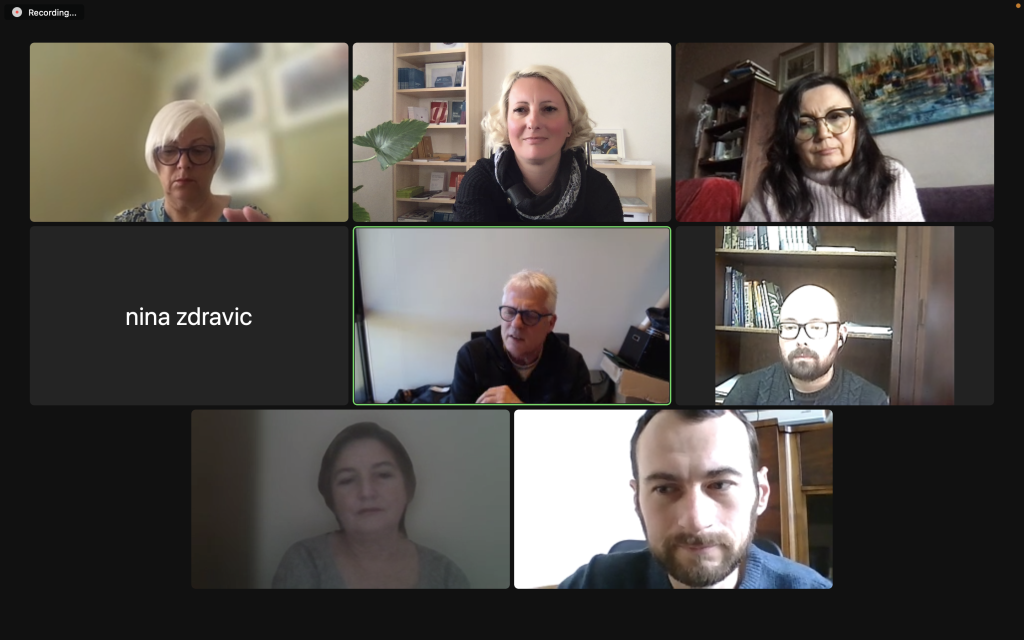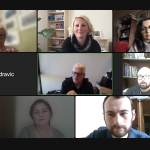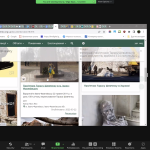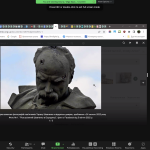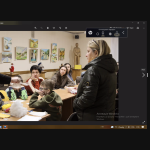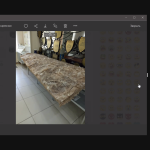The Forum of Slavic Cultures has been in regular contact with Ukrainian museums in recent weeks. In the pursuit of networking cultural and other institutions, which is also the mission of the FSK, they have already held several online meetings with representatives of museums in Ukraine and other partners, and have launched a special webpage dedicated to Ukrainian cultural heritage.
In the face of the attack on Ukraine and the threat to its cultural heritage, the FSK and its partners decided to offer assistance to their Ukrainian colleagues. In recent weeks, they have been in regular contact with more than ten museums, mainly in Lviv and Kiev. At the last remote meeting, representatives of the museums (Museum of Books and Printing, Lviv National Literary Memorial Museum of Ivan Franko, State Polytechnic Museum – Kyiv University Museum, National Museum of the History of Ukraine in the Second World War and National Museum of Taras Shevchenko) spoke about the current situation in their institutions and presented the activities they are carrying out in the museums despite the emergency situation. They stressed that they were aware of the importance of documenting the destroyed heritage and at the same time preserving it.
A special guest of the meeting, Paul Van Brakel, President of ICOMAM (International Committee for Museums and Collections of Arms and Military History), invited the participants to write expert contributions for the ICOMAM magazine and to take part in the programme that the Committee is preparing for the ICOM General Conference. This will take place in August in a hybrid format, in Prague and remotely.
The FSK has also launched a dedicated website, which provides Ukrainian colleagues with a direct link to experts from the FSK network, information on the activities of museums for Ukrainians around the world, and information, including photos and videos, on current events in Ukrainian museums. By responding to the situation in Ukraine and the region, the FSK is pursuing its core mission of linking cultural and other institutions, preserving intercultural dialogue and promoting Slavic cultures.

